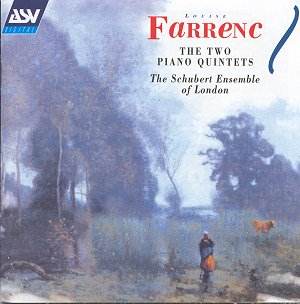 Composer: Antonín Dvořák
Composer: Antonín Dvořák
Works: Piano Works 2: Waltzes Op. 54, Eclogues Op. 56, Piano Pieces Op. 52, Moderato in A major B116, Album Leaves B109/2, B109/3, B109/4
Performers: Radoslav Kvapil, piano
Recording: Domovina Studios, Prague, 1969 and 1970
Label: SUPRAPHON
Dvořák’s contributions to the piano repertoire often occupy a peripheral position within his extensive oeuvre, primarily conceived for domestic performance rather than the grand concert hall. The works presented in this collection—spanning the charming Waltzes Op. 54, the introspective Eclogues Op. 56, and the Piano Pieces Op. 52—reflect Dvořák’s compositional evolution, demonstrating his ability to craft music that, while intimate in nature, possesses an undeniable melodic allure and rhythmic vitality.
Radoslav Kvapil’s interpretation brings a lively sensibility to the Waltzes, written for a Prague ball in 1879. His approach to the first Waltz, marked Moderato, initially seems too measured, yet this decision allows for a fully realized contrast as the tempo quickens in subsequent movements. Notably, Kvapil’s nuanced touch in the second Waltz showcases his technical finesse, with a crisp articulation that brings forth the piece’s lively character. The fourth Waltz stands out, resonating with the same infectious energy found in Dvořák’s beloved Slavonic Dances. Kvapil’s handling of the key modulations in the fifth Waltz exemplifies his interpretative agility, intertwining anticipation and a delicate sense of rubato that enhances the music’s inherent charm.
Transitioning to the Eclogues, which were published posthumously in 1921, Kvapil navigates these shorter pieces with a keen sensitivity to their pastoral qualities. The opening piece may appear somewhat generic, but the Quasi Allegretto reveals a more insistent character that, while perhaps lacking in distinctiveness, still captivates through its rhythmic drive. The Allegretto reuses thematic material from the Dances, and Kvapil’s performance elegantly underscores the lush harmonies that characterize Dvořák’s style. His interpretative choices here reflect a deep understanding of the work’s emotional landscape, even if the pieces themselves seem less substantial than the composer’s more prominent works.
The Piano Pieces, which arose from the success of the Slavonic Dances, offer a varied palette of moods and textures. Kvapil delivers the Intermezzo with introspection, encapsulating Dvořák’s Classical inclinations through a lyrical line that contrasts strikingly with the more folkloric elements of his other compositions. This cycle also includes the charming yet lesser-known Album Leaves, which Kvapil plays with a Schumannesque flair, revealing a delightful delicacy that aligns well with the pieces’ intimate character.
Recorded in the late 1960s, the sound quality demonstrates the engineering standards of its time, with a warmth that complements Kvapil’s expressive playing. The clarity of the piano is commendable, allowing for the intricate details of Dvořák’s writing to emerge without undue interference. While some may find the historical context of these recordings less robust compared to modern renditions, Kvapil’s artistry and the inherent charm of Dvořák’s compositions create an inviting listening experience.
This collection serves as a valuable resource for Dvořák enthusiasts seeking to explore the more personal facets of his piano repertoire. Kvapil’s performances are characterized by a refreshing authenticity and a sense of spontaneity that breathe life into these occasional pieces. The interplay between Dvořák’s melodic invention and Kvapil’s interpretative insight makes this recording a significant addition to the understanding of the composer’s less frequently trodden paths, revealing the delightful intricacies of Dvořák’s piano music.



